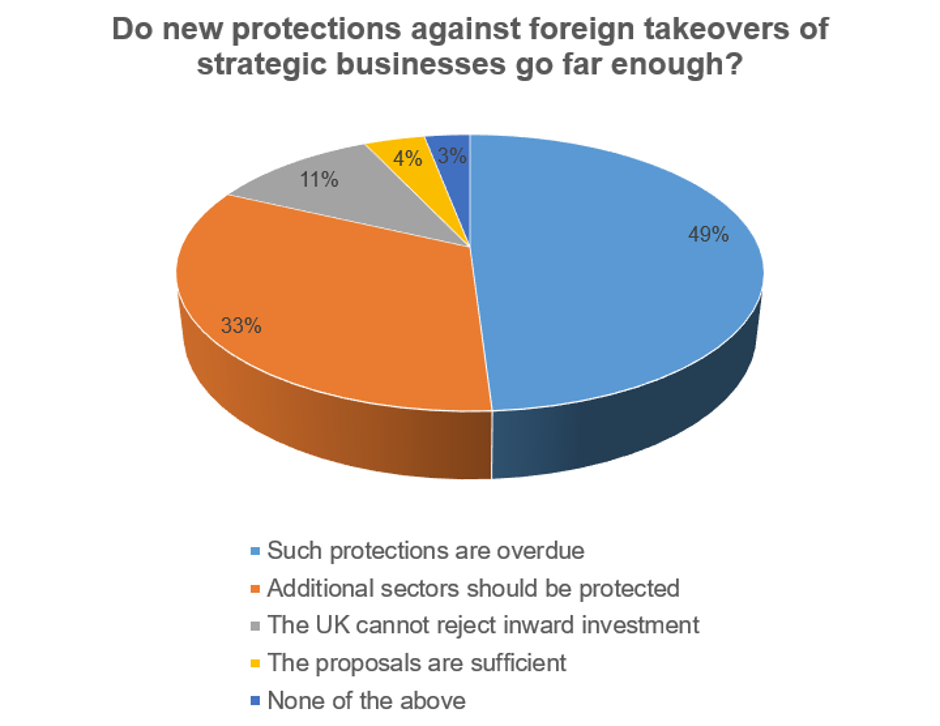Last week's poll was predicated by government proposals to prevent manufacturers in strategic industrial sectors from being bought by foreign interests.
The proposals apply to manufacturers in two sectors: the ‘dual use’ and military sector, whose products are already subject to export controls; and companies involved in the design of computer chips and quantum technology.
The government can intervene when the annual turnover of the target company is above £70m — this limit will be reduced to £1m — and if the proposed takeover or merger increases the company’s share of UK supply to 25 per cent or over. More information on the proposals can be found here.

Of the 320 votes, just under half (49 per cent) thought that such protections are overdue, followed by a third of the vote who thought additional sectors should be afforded such protection.
Of the remaining 18 per cent of the vote, 11 per cent thought that the UK isn’t in a position to reject inward investment, four per cent thought the proposals to be sufficient and three per cent couldn’t find a fit with their view.
The debate that followed saw comments from those advocating government abstention in matters of takeovers, and others taking a more protectionist view.
Mohammed Amin Abdullah said: ‘This all seems wrong to me. People should be free to buy and sell companies as they please. Indeed, the UK should strive to be a paragon of laissez-faire capitalism, with one major caveat: there should be considerable public assets in infrastructure, strategic industries and R&D. The United States has operated incredibly successfully with this model, and the UK should aim to do the same.
In answer to our question, 20 Cent said: ‘Not only strategic industries but strategic infrastructure should be in the hands of British companies or the British Government. I mean water companies, power generation and distribution companies, rail transport companies, etc.’
Others thought that questions around takeovers should start at home, with Edward adding: ‘I am also concerned about the conduct of British companies when it comes to strategic industrial sectors. Companies like BAE Systems have a long history of taking over operations in the UK and then closing them down and moving production elsewhere…leaving the country dependent upon imports in many key areas. The key driver in several of these ‘rationalisations’ was to free up the land the plants stood on for house building. It now seems likely that the new warships being built by BAE for the Royal Navy will be fitted with naval guns built in BAE plants in the US – what future for UK-built naval guns? While fully understanding that companies like BAE need to be profitable, stripping out the UK defence industry to achieve that does nothing to protect national interests.’
This view was backed up by John Smith, who said: ‘You can also include the Rover group. It only took them 6 years to close factories and sell the land. Not a fine example of corporate responsibility. We now have to rely on foreign manufacturers to create a British car industry.’
What do you think? Keep the debate active by submitting your comments below.





Red Bull makes hydrogen fuel cell play with AVL
Surely EVs are the best solution for motor sports and for weight / performance dispense with the battery altogether by introducing paired conductors...